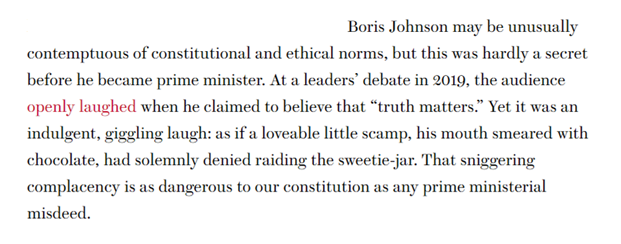
"The Conservative Party has been accused of ... systematically offering seats in the House of Lords to a select group of multimillionaire donors".
"An ex-party chairman said: “once you pay your £3 million, you get your peerage”". thetimes.co.uk/article/new-to…
"An ex-party chairman said: “once you pay your £3 million, you get your peerage”". thetimes.co.uk/article/new-to…
"22 of the Conservative party’s main financial backers have been given peerages since 2010. ... Together they have given £54 million to the party".
"Since Johnson became prime minister 96 peers have been created". That's nearly 1 in 8 of the entire House in just two years.
"Since Johnson became prime minister 96 peers have been created". That's nearly 1 in 8 of the entire House in just two years.
A peerage brings a vote for life on the laws by which we are governed. It should not be used as a political slush fund for the governing party.
For more on this story, see this @openDemocracy investigation by @SAThevoz. opendemocracy.net/en/dark-money-…
For more on this story, see this @openDemocracy investigation by @SAThevoz. opendemocracy.net/en/dark-money-…
And here's a piece I wrote for the @NewStatesman last year on the history of Lords reform - and why "those who want to abolish the Lords should be careful what they wish for". newstatesman.com/uncategorized/…
• • •
Missing some Tweet in this thread? You can try to
force a refresh












